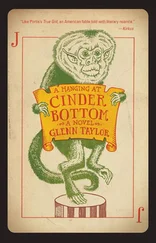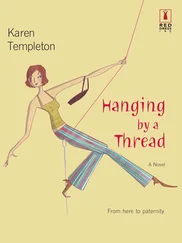Dedication Contents Cover Title Page Dedication One Two Three Four Five Six Seven Eight Nine Ten Keep Reading About the Author Also by the Author Copyright About the Publisher
To MY FATHER, HENRY EPHRON
1911–1992
Cover
Title Page HANGING UP DELIA EPHRON
Dedication Dedication Contents Cover Title Page Dedication One Two Three Four Five Six Seven Eight Nine Ten Keep Reading About the Author Also by the Author Copyright About the Publisher To MY FATHER, HENRY EPHRON 1911–1992
One
Two
Three
Four
Five
Six
Seven
Eight
Nine
Ten
Keep Reading Конец ознакомительного фрагмента. Текст предоставлен ООО «ЛитРес». Прочитайте эту книгу целиком, купив полную легальную версию на ЛитРес. Безопасно оплатить книгу можно банковской картой Visa, MasterCard, Maestro, со счета мобильного телефона, с платежного терминала, в салоне МТС или Связной, через PayPal, WebMoney, Яндекс.Деньги, QIWI Кошелек, бонусными картами или другим удобным Вам способом.
About the Author Конец ознакомительного фрагмента. Текст предоставлен ООО «ЛитРес». Прочитайте эту книгу целиком, купив полную легальную версию на ЛитРес. Безопасно оплатить книгу можно банковской картой Visa, MasterCard, Maestro, со счета мобильного телефона, с платежного терминала, в салоне МТС или Связной, через PayPal, WebMoney, Яндекс.Деньги, QIWI Кошелек, бонусными картами или другим удобным Вам способом.
Also by the Author Конец ознакомительного фрагмента. Текст предоставлен ООО «ЛитРес». Прочитайте эту книгу целиком, купив полную легальную версию на ЛитРес. Безопасно оплатить книгу можно банковской картой Visa, MasterCard, Maestro, со счета мобильного телефона, с платежного терминала, в салоне МТС или Связной, через PayPal, WebMoney, Яндекс.Деньги, QIWI Кошелек, бонусными картами или другим удобным Вам способом.
Copyright Конец ознакомительного фрагмента. Текст предоставлен ООО «ЛитРес». Прочитайте эту книгу целиком, купив полную легальную версию на ЛитРес. Безопасно оплатить книгу можно банковской картой Visa, MasterCard, Maestro, со счета мобильного телефона, с платежного терминала, в салоне МТС или Связной, через PayPal, WebMoney, Яндекс.Деньги, QIWI Кошелек, бонусными картами или другим удобным Вам способом.
About the Publisher Конец ознакомительного фрагмента. Текст предоставлен ООО «ЛитРес». Прочитайте эту книгу целиком, купив полную легальную версию на ЛитРес. Безопасно оплатить книгу можно банковской картой Visa, MasterCard, Maestro, со счета мобильного телефона, с платежного терминала, в салоне МТС или Связной, через PayPal, WebMoney, Яндекс.Деньги, QIWI Кошелек, бонусными картами или другим удобным Вам способом.
I always knew my mother had no friends because she never talked on the telephone. During the day, when the phone rang, the cleaning lady would answer, saying, “Mozell residence.” Or my father would pick up, yelling, “I’ve got it.” Or else my sisters and I would fight for the receiver, grabbing it out of each other’s hands. If Georgia answered and then just dropped the receiver, leaving it dangling about an inch above the floor, the call was for me. It was never for my mother.
My father planned their social life. “The Irvings on Friday,” or whoever, he would say, bounding into the room after hanging up. Social life turned him on. He was like a dog pulling at its leash, waiting for the moment when he could bolt out to dinner, see friends. My mother lay on the couch doing the crossword. “The Irvings on Friday”—sometimes he had to say it three times to get her attention.
Every day, when she returned from teaching, my mother did the New York Times crossword puzzle. We were the only family I knew in Los Angeles who took The New York Times , and we took it because my mother said, “It’s the only crossword puzzle worth doing.” She lay there, her head propped up on throw pillows, her stocking feet neatly crossed, and worked her way straight through from one across to sixty-two down.
The crossword seemed to be the thing she lived for, and it was the main constant in our daily lives, until the fights.
That’s what my sisters and I called them: the fights. As if the frequent arguments between my parents were bouts in a ring.
They started in the fall of 1966, when I was a sophomore at Uni High School in West Los Angeles, the same high school where my mother taught literature— A Tale of Two Cities, My Ántonia, The Stranger . She finished teaching at two, I didn’t get out until three-thirty, and I would go into the living room to let her know I was home. She always said the same thing, “If you’re hungry, have an apple,” working her pen on the crossword without pause. But one day when I came home she was staring at her feet, the puzzle lay undone on her stomach. Her shoes were on, and they were not the usual brown pumps that she wore each day with her shirtwaist dresses. They were red high heels with open toes. As I watched, she raised one leg and turned her slender foot to and fro, wiggling her toes and then admiring the open back with the strap across.
“Hi, Mom,” I said.
She sat up and slipped the shoes off. “Slingbacks,” she said. “Do you like them?”
“No.”
“No?” She smiled at me. “Well, I do.” She got up and walked over to a mirror and did something else I had never seen: She turned up the collar on her shirtwaist dress.
“That looks dumb,” I said.
She ignored my comment, smoothing her hair over her ears.
My mother wore her dark wavy hair cut almost as short as a boy’s, and slicked back off her face, a style she referred to as “no nonsense.” Her only concession to vanity, until the slingback heels appeared, was the bright pink lipstick she freshened every hour or so.
I kept an eye on those shoes. They disappeared into the closet for the rest of the week, although her collars stayed up, and she even added a scarf, a jaunty silk thing that she tied around her neck western style in a little knot, letting the short ends lap over her collar.
Then, on Saturday morning, she tipped her hand.
Читать дальше












